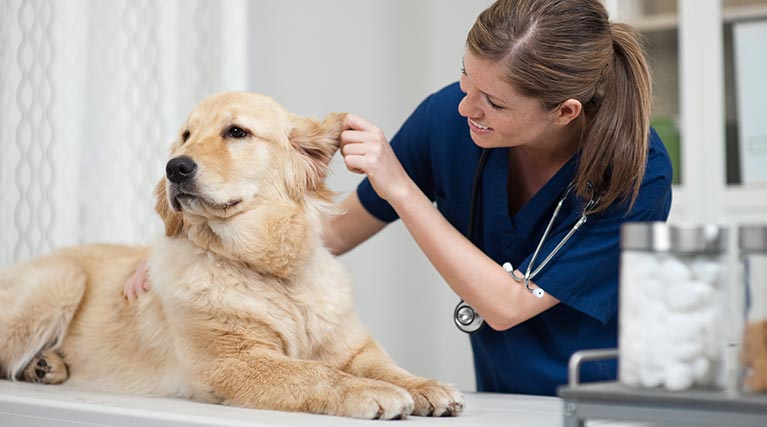Vet Enterprise Offers Specialized Take Care Of Your Pet's One-of-a-kind Health Needs
Vet Enterprise Offers Specialized Take Care Of Your Pet's One-of-a-kind Health Needs
Blog Article
Vaccination Guidelines From Your Trusted Vet
Inoculation standards supplied by your relied on veterinarian play an essential role in protecting your pet dog's health and wellness and well-being. Furthermore, dealing with usual misconceptions bordering injections can better enhance family pet owners' self-confidence in these preventative steps.

Importance of Vaccinations
Inoculations play a crucial role in safeguarding family pets versus a range of preventable illness. By boosting the body immune system to recognize and combat particular microorganisms, vaccines considerably decrease the incidence of transmittable diseases that can impact a pet's wellness and durability. Not just do inoculations safeguard individual pets, but they additionally add to herd immunity, thereby lowering the total frequency of illness in the animal populace.
Prompt inoculations help to minimize the spread of illness such as rabies, parvovirus, and distemper, which can have serious consequences for both pets and people. Vaccinations are commonly a need for boarding centers, brushing solutions, and pet dog parks, making them crucial for those that want to mingle their pet dogs.

Core Vaccines for Family Pets
While the details inoculation needs of pet dogs can vary based upon specific elements, core vaccines are generally suggested to safeguard against one of the most common and serious diseases (Vet Enterprise). Core vaccines are those regarded necessary for all pets, no matter of their way of life or geographical place, as they guard against very contagious and possibly fatal health problems
For canines, the core injections consist of those for canine distemper, parvovirus, adenovirus (hepatitis), and rabies. Adenovirus can result in liver condition, while rabies is a zoonotic condition that postures a danger to both people and family pets.
In felines, core vaccinations encompass feline panleukopenia, feline calicivirus, feline herpesvirus (rhinotracheitis), and rabies. Feline panleukopenia is a highly infectious viral condition that influences the body immune system and intestines. Calicivirus and herpesvirus are major contributors to upper breathing infections in pet cats, while rabies stays a vital problem for public health and wellness.
Speak with your veterinarian to ensure your animals obtain their core inoculations on timetable.
Non-Core Vaccines Explained
Non-core vaccinations are tailored to attend to certain dangers connected with a family pet's exposure, setting, and lifestyle to particular conditions. Unlike core injections, which are generally recommended for all animals, non-core vaccines are considered based on private conditions. These vaccinations are especially essential for animals that may encounter unique virus because of their geographical place, travel habits, or tasks.
Examples of non-core vaccinations include those for Bordetella bronchiseptica, which is connected to kennel cough, and Lyme disease, triggered by ticks. Pet dogs that regularly communicate with other read this post here animals, such as those in boarding facilities, canine parks, or brushing settings, may take advantage of Bordetella inoculation. Similarly, if you stay in a location where Lyme condition is widespread, immunizing against this condition can be a prudent selection for outdoor-loving dogs.
Other non-core vaccines might include those for leptospirosis, canine flu, and feline leukemia, depending on the details threat elements existing. It is vital to have a comprehensive conversation with your veterinarian concerning your pet's way of life and the prospective requirement for these injections, guaranteeing a tailored inoculation approach that best secures your furry friend.
Vaccination Arrange Review

As family pets grow, it is very important to follow the recommended booster inoculations. Veterinarian Enterprise. For adult pets, core vaccinations are generally provided each to 3 years, depending on the certain vaccination and neighborhood laws. Non-core injections might be suggested based upon lifestyle factors and local condition frequency, demanding a tailored approach
Routine veterinary check-ups are critical for updating inoculation schedules. Your veterinarian can supply advice on the most suitable immunizations for your animal, factoring in age, health and wellness condition, and ecological threats. By remaining proactive and educated, family pet proprietors can ensure their fuzzy buddies get efficient and prompt inoculations, consequently guarding their health and well-being throughout their lives.
Typical Myths Concerning Vaccines
Misconceptions about family pet vaccinations can result in confusion and unwillingness among pet proprietors pertaining to the booster shot procedure. One common myth is that vaccines are unneeded for interior family pets. While it holds true that indoor pets encounter reduced threats, they are not totally immune to conditions, as microorganisms can be introduced through my review here various methods, consisting of human clothes and other pets.
An additional false impression is that vaccinations can trigger the diseases they intend to avoid. Actually, many injections have inactivated or undermined microorganisms, which can not cause disease in healthy and balanced animals. Some pet dog owners additionally think that their animals need to not be vaccinated if they are currently healthy and balanced; however, vaccinations are a positive measure that assists protect against the beginning of disease.
In addition, many family pet proprietors are afraid that vaccinations will certainly lead to long-term health and wellness difficulties. The advantages of inoculation-- shielding animals from potentially dangerous illness-- far surpass the risks.
Final Thought
In recap, adherence to vaccination guidelines is vital for ensuring the wellness and durability of pets. Core vaccines provide vital protection versus serious conditions, while non-core vaccinations attend to certain dangers based upon private lifestyles. Developing a thorough inoculation timetable, in combination with routine veterinary exams, facilitates optimum wellness administration. Eliminating common misconceptions bordering vaccinations better enhances the importance of educated decision-making in family pet treatment. Eventually, a proactive approach to inoculations is important for keeping pet well-being.
Not just do vaccinations shield specific pets, but they additionally contribute to herd resistance, thus minimizing the general prevalence of illness in the pet populace.
Misunderstandings concerning animal inoculations can lead to confusion and unwillingness among pet proprietors pertaining to the immunization procedure. While he said it's true that interior pets deal with reduced risks, they are not entirely immune to diseases, as microorganisms can be presented via different methods, including human apparel and other pet dogs.
Some pet owners likewise think that their pets ought to not be vaccinated if they are currently healthy and balanced; however, vaccinations are an aggressive action that aids stop the start of disease.
The advantages of inoculation-- safeguarding pet dogs from possibly life-threatening conditions-- much outweigh the risks.
Report this page